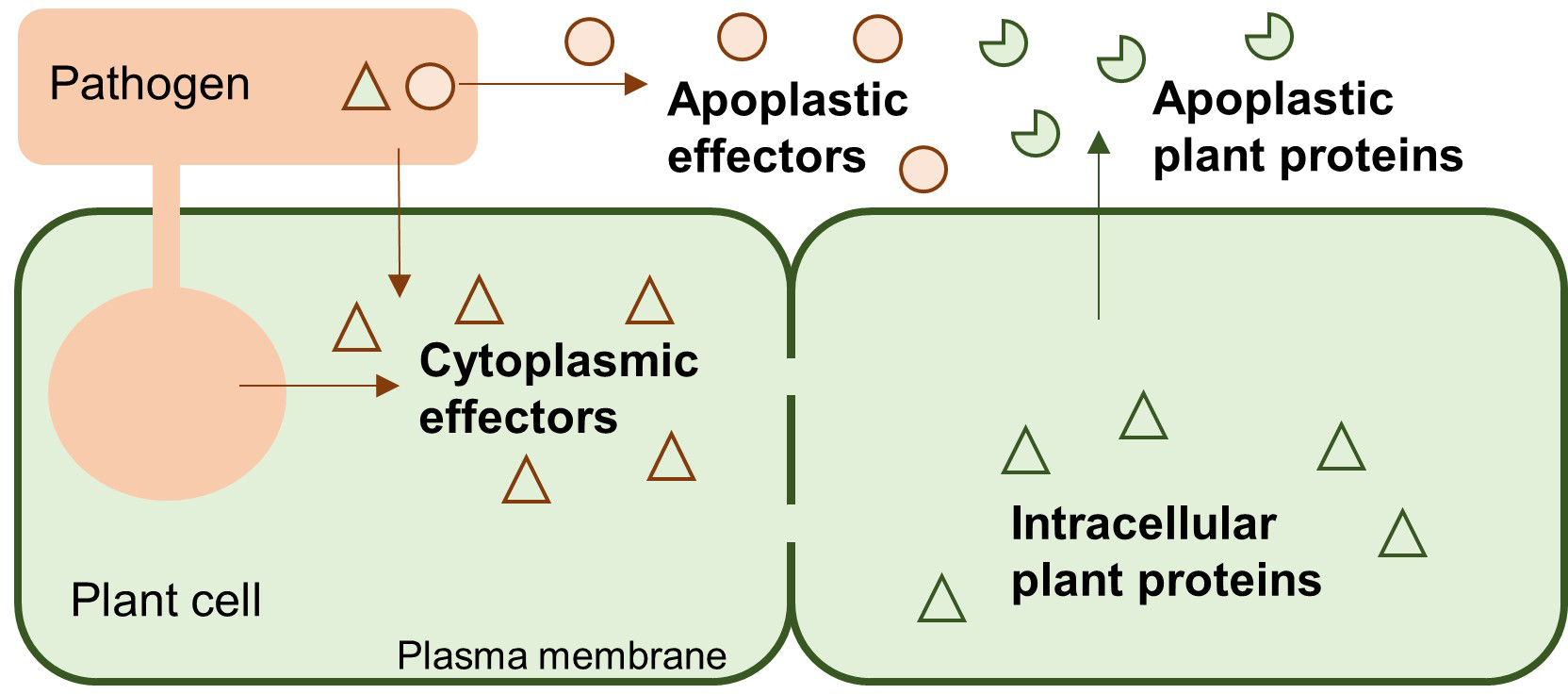| Home | Instructions | Output format | Data | Software |
What is ApoplastP?
The plant apoplast is vital to signalling, transport and plant-pathogen interactions. Pathogens secrete effector proteins that either function in the plant apoplast (apoplastic effectors) or that function inside the host cell (cytoplasmic effectors).
ApoplastP is a machine learning method for plant apoplast localization prediction for both secreted plant proteins and effector proteins. It achieves sensitivity of around 75% and specificity of over 95% on test sets of effectors.
For more details on the underlying method, please see our paper:
Input
ApoplastP has been trained to predict proteins that localize to the plant apoplast, so please submit a FASTA file of secreted proteins to test if they are predicted apoplastic proteins. It is recommended to use tools such as SignalP or Phobius to predict first if a protein is likely to be secreted. Alternatively, experimentally determined secretomes (e.g. apoplastic proteomics) instead of computationally predicted secretomes can be submitted to ApoplastP to discover unconventionally secreted proteins that localize to the apoplast.

